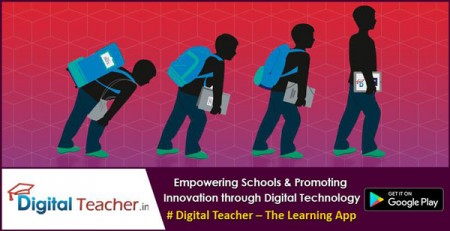K-12 Education in India The K-12 education in India is the term used to denote the education imparted in the primary and secondary phases of school life, including Kor kindergarten to 12 which stands for the 12th standard. This particular system covers education from kindergarten to the 12th grade. The concept is gradually gaining its importance in India with the government introducing new educational schemes like free compulsory primary education throughout the country. Many countries have made the adoption of this system mandatory. In India too, schools are embracing K12 model of education to align with the concepts of Sarva Shiksha Abhiyan (education for all) and the Right to Education (RTE). The most significant attribute of K-12 is the method of categorizing the entire tenure of a student’s journey in school into three phases: Kindergarten, Middle, Senior. The introduction and rising popularity of the K-12 education system in India itself stands witness to the reformed education system in the country. The mode of teaching, as well as the content and resources, have changed to a great extent to facilitate more involvement of students. Schools nowadays, invest a good amount to create the best infrastructures for their students. Students, on their part, just grab the best of these facilities and available resources offered for optimum learning. Online smart classes are the best platform through which one can learn from anywhere. This kind of platform is what the K-12 education system promotes and this is what more and more schools in India are adapting to. The introduction of technology has revolutionized education and that has given birth to new modes of education. This kind of educational system is different from the conventional method of teaching and involves more teacher-student communication than the conventional version. The introduction of technology is leading to online smart classes, learning online. Online smart classes allow students to learn anytime from anywhere ensuring learning is no longer limited to the four walls of a classroom. Students can learn from the comforts of their home or while strolling in the park. This allows learners to explore their interests more. For instance, in the conventional scenario, a learner can approach the teacher only during school hours to clarify any doubts. However, many online learning platforms have doubt clarification sessions that allow students to clarify their doubts instantly. Online Education in India: 2021’, a comprehensive report prepared by KPMG in India and Google points out that the online education market in India is slated to witness an eight-fold growth by 2021. There is already a rise in the number of e-learning companies offering classroom supplement solutions and solutions for competitive examinations. And the coming years will witness a further rise. So technology is playing a key role in transforming K-12 education in India. In the face of the growing need for specialized education, support services with a prior emphasis on enhanced quality of learning and teaching, K12 Techno Services is one of the companies which offer a full spectrum of services which prompt education while serving the needs of all involved. With a focus on providing need-based solutions, K12 Techno Services strive to achieve the highest levels of excellence in facilitating exemplary school education. There are many more start-ups and companies which are working on this regard. The landscape of K-12 learning has undergone an overhaul in recent years and yet the journey has just begun. Many emerging digital learning formats, including interactive games, learning management systems, and hands-on learning methodologies, have swept the landscape with the promise of improving learning experiences and outcomes.


